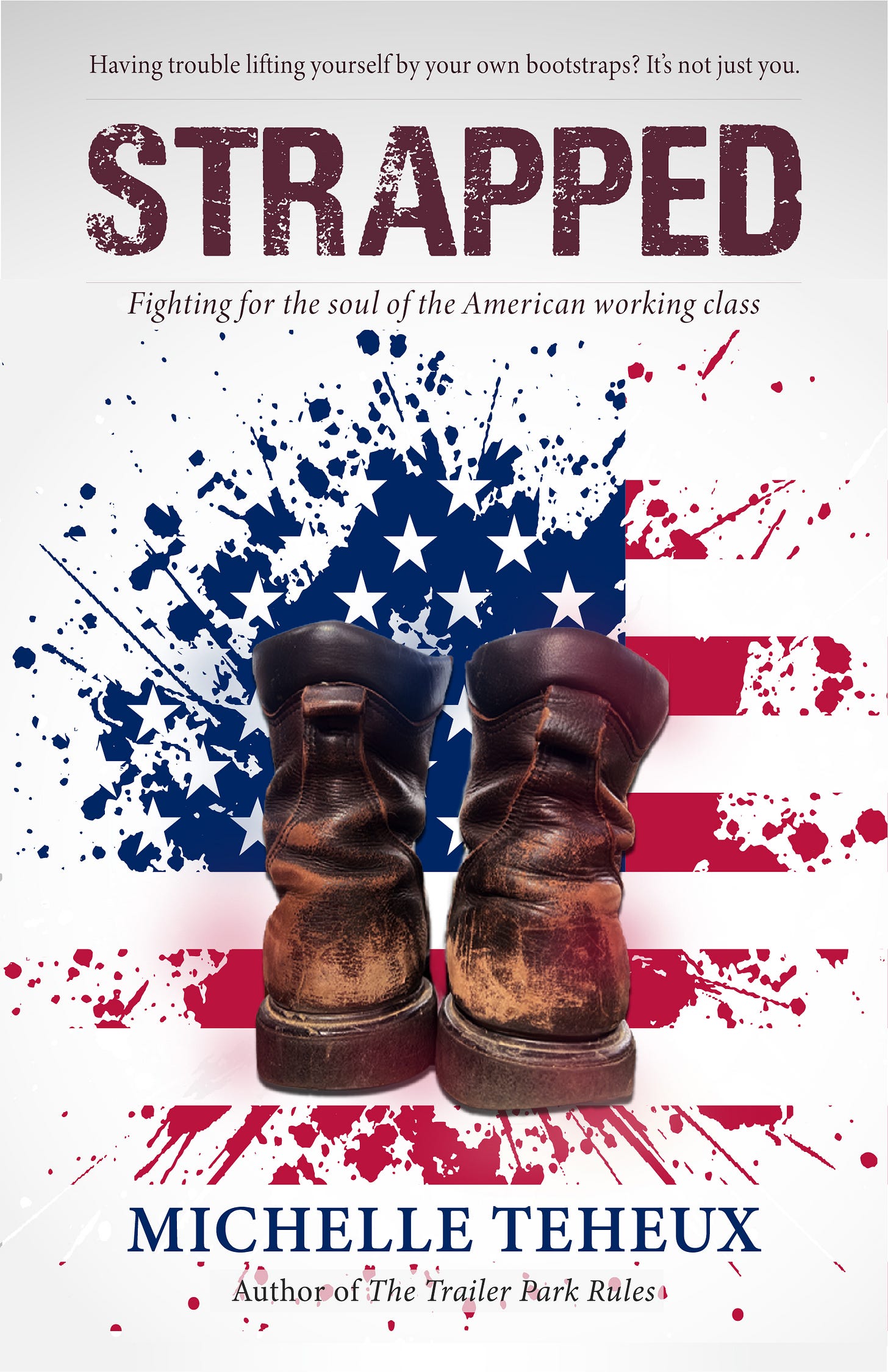
This was a big week for income inequality news!
The killing of a healthcare CEO made clear just how much hatred the general public has for the overpaid people in charge of deciding whether our insurance will or will not provide the care we need – if that’s not an income inequality topic, I don’t know what is. If you can afford to purchase excellent insurance, or if you can pay out of pocket, you are much more likely to survive an illness or injury than if you are at the mercy of a mercenary insurance company.
But it’s also the holiday season, when many people are worried about being able to provide a meaningful Christmas for their families — look for two entries that include ideas for enjoying Christmas without blowing money you don’t have.
And all this is happening exactly when the national economy, which economists have insisted is quite good, finally turned around. Oh, wait, it is actually the same economy it was before the election, but now the Trumpers are trumpeting the claim that his election has turned that economic frown upside down. Don’t fall for that, please.
As always, my goal with this weekly round-up is to emphasize just how much the topic of income inequality is woven into the news.
Please stop celebrating Small Business Saturday
Katherine Raz, Storefront Revolt
But really, this is not a small business holiday. Small Business Saturday is an ad campaign created for (and trademarked by) American Express, launched in 2010 to position themselves as small business-friendly in the wake of the 2008 financial crisis. American Express got $3.4 billion in bailouts from TARP, paid for by the American people, and not even two years later they tricked us into creating free marketing content—a lot of free marketing content—for their viral ad campaign.
It Will Never Be Fair.
Tania Kindersley
I have to have three day jobs (and night jobs) to subsidise my writing career, and I did at one point have six day and night jobs. Probably the thing that saves me is that I am an amazingly cheap date. I live deep in the countryside and I’ve got a kind landlord who gives me a very reasonable rent and I go on holiday once every three years to a Scottish island and I don’t eat out or buy ready meals and I only need the kind of clothes that will keep you warm when you are looking after horses.… So, if a younger writer were to come to me now I’d say: live cheap if you can; love writing for its own sake; accept the not-fairness.
Wikler for Chair
Robert Reich
Speaking on CNN’s “Inside Politics,” Wikler said, “I’m running for chair of the Democratic National Committee because we need to unite, we need to fight, and we need to win to stop the GOP from ripping this country apart and ripping off working people to enrich mega billionaires.”
Wikler is the right man for the job.
‘Tis the season for revolutionary books about money
Dana Miranda, Healthy Rich
The turn of the year is a big time for folks to think hard about money. This season of holiday spending and resolution resetting tends to spur warnings to watch your budget and tend to your debt.
But this year, with my own anti-budgeting personal finance book coming out in just three weeks, I’ve been delighted to discover a handful of other authors are also crying foul in the face of our disordered cultural relationship with money. Maybe this New Year will be the one where we turn the tide on budget culture?
40 Writers Share Easy Ways to Infuse More Joy into the Holidays
Lindsey Stanberry, The Purse
So I am trying to shake off my Grinchiness this holiday season. In order to really get into the spirit, I tapped the many Substack writers I’ve gotten to know over the past year and asked them to share the low- and no-cost ways they are infusing more joy into the season. They more than delivered (because they are the very best!) with suggestions for movie marathons, touristing in your own town, and letting go of expectations.
What really happened after California raised its minimum wage to $20 for fast food workers
Judd Legum, Popular Information
Despite the dire warnings from the restaurant industry and some media reports, the Shift Project's study did "not find evidence that employers turned to understaffing or reduced scheduled work hours to offset the increased labor costs." Instead, "weekly work hours stayed about the same for California fast food workers, and levels of understaffing appeared to ease." Further, there was "no evidence that wage increases were accompanied by a reduction in fringe benefits… such as health or dental insurance, paid sick time, or retirement benefits."
While workers enjoyed significantly higher wages, the impact of prices was modest. A separate study by the Institute for Research on Labor and Employment (IRLE) used UberEats data to compare prices at fast food chains before and after the new minimum wage took effect. The IRLE study found that prices increased about 3.7% after the wage increase — or about 15 cents for a $4 hamburger.
The Exchange Students
Jess Piper, The View From Rural Missouri
My Estonian student once remarked on paying for lunch in school. She had never seen a school lunch cafeteria with a cash register. She asked if it was just for adults and seemed puzzled when I said all students pay for lunch unless they qualify for a free lunch — if their parents were economically disadvantaged. She was pretty pissed about it actually.
How Did We Get Here?
Colin MacRae, Ancient Wisdom Traditions & The Lost Art of ‘Being’
The inexorable advance of the rich-get-rich economy has boiled down to this startling fact: just eight men control as much wealth as the poorest half of the world’ population: 3.6 billion people. This is the finding from the charity Oxfam , which presented its report at the latest annual meeting of the World Economic Forum in Davos Switzerland. …
Of all of these eight men who are wealthier than 3.6 billion people, seven are American and control Social Media Sites, and the eighth is Elon Musk who is hobnobbing with Generals from the Pentagon and making himself right at home, and anticipates his role as director of economic policy under a Trump administration. I don’t see exactly how he could make the disparity of wealth in America even more stacked against the average citizen, but I’m sure he will find a way. One percent of Americans have more wealth than the other 99%!
Selling Womanhood: The Medieval Conceptualization, Capitalization, and Concealment of Women's Bodies
15th Century Feminist
If we hold fast to the censorious belief that class is in fact more punishing than gender, then we run the risk of minimizing the overlapping oppressive realities both class and gender impose(d) upon women.6
The women of medieval England, regardless of class, were socially expected to provide the devastatingly dangerous physical labor of repopulating (and breastfeeding!) post-plague years—and, well, every other year too. Wealthy women could afford costly calcium-dense animal cheeses, which supported both their own bone density and the (usually) several nutrient-demanding pregnancies they endured. Even if they were unaware of the benefits, they still had access to receive them. Women of the lower social classes did not. Often leaving them undernourished for the laborious—and too often fatal—task of child-birth and lactation production.7
America Runs On Violence
Michelle Teheux, Untrickled
It’s entirely lawful to accept thousands of dollars per year in insurance payments and then to refuse to use that money to pay for that person’s care – even if it’s clear the person will die without it.
It’s also entirely lawful for a healthcare CEO like Thompson to accept a compensation package of $10.2 million, fully understanding that he could have opted to make, let’s say $200,000, which would have made $10 million available for things like little girls with brain cancer.
It’s also entirely lawful for greedy people to exploit from workers most of the world’s wealth while fully understanding that some of those they exploit will die of want. Exploiting others is not merely lawful: You’re likely to be celebrated for it!
The Response to the Targeted Murder of a Health Insurance CEO Reveals America's Increased Contempt For The Rich
THE LEFT HOOK with Wajahat Ali
The fact there are so many morbid jokes around the murder of Brian Thompson reveals the level of contempt people have toward the greed of CEOs, insurance companies, and healthcare profiteers. This is nothing new as there’s a history of correlation between income inequality and violence.
What’s a life worth?
J.P. Hill, New Means
We are charged, right now, to not just discuss one murder, but to take an intentional look into a system that condones and even incentivizes the denial of life on the biggest possible scale. Capitalists in the United States have worked for decades to deny us the care that our counterparts in other wealthy countries receive. The ruling class fights to deny us universal care and to instead tether us to our jobs with employer-funded health care, while the quality of that care simultaneously deteriorates.
An Assassin Showed Just How Angry America Really Is
Matt Stoller, BIG
“Egalitarian distribution of wealth,” Milton wrote, “would eliminate the danger that a wealthy minority or an impoverished majority would seize governmental power in order to redistribute wealth for its own selfish benefit. In other words, unequal distribution meant either plutocracy or mob rule.” And this notion goes straight through the 20th century. Post-WWII era suburban architect William Levitt pithily updated Jefferson’s argument when he said, “No man who owns his own house and lot can be a Communist. He has too much to do.” Barack Obama even made this observation in 2009 when he told bankers at the height of the financial crisis that “my administration is the only thing between you and the pitchforks."
Desperately Seeking a Coalition of the Decent
Charlie Sykes, To The Contrary
Unlike some of my colleagues here, I’m not going to devote 5000 words to explaining why murder is wrong; or why shooting businessmen in the back is not the way to address inequities. Suffice it to say that history is soaked with bloody consequences of violence between the haves and have nots.
That’s why democracy and the rule of law matter so much: they let us resolve our differences without killing one another.
About Michelle Teheux
I’m a writer in central Illinois. If you like my work, subscribe to me here or on Medium. My new book is Strapped: Fighting for the soul of the American working class. Tips accepted here.


















